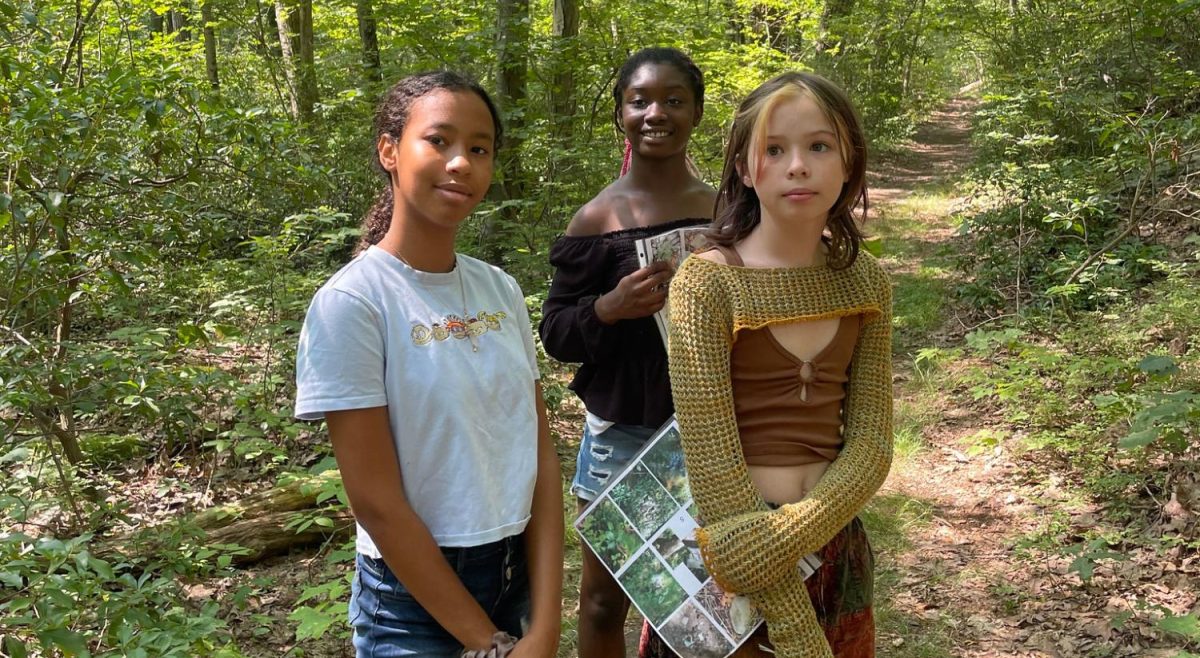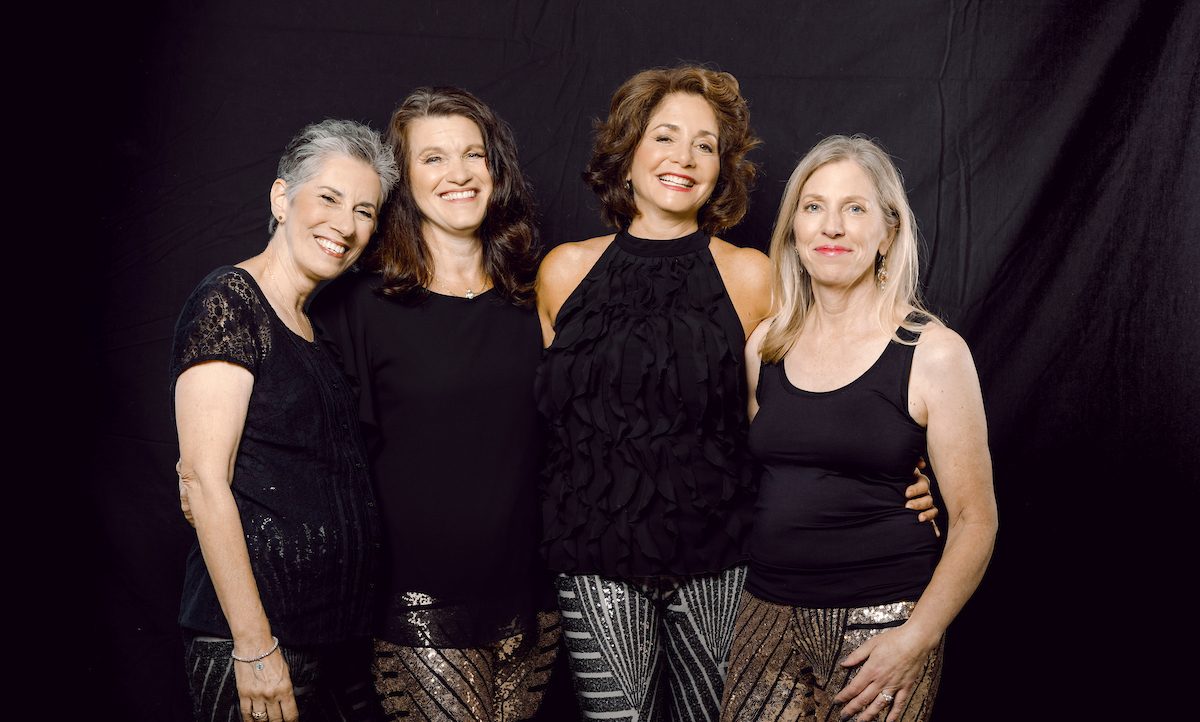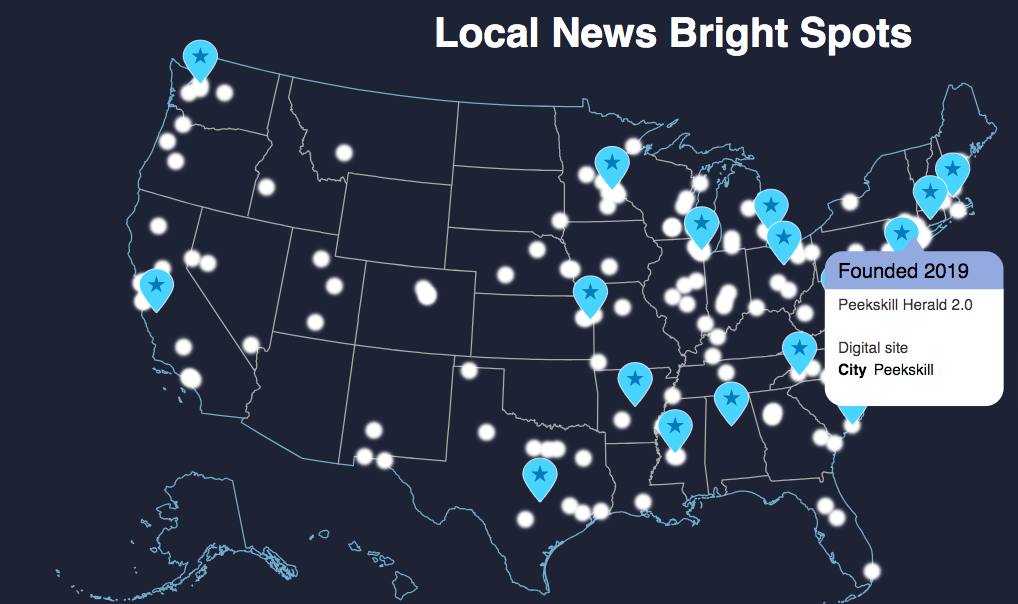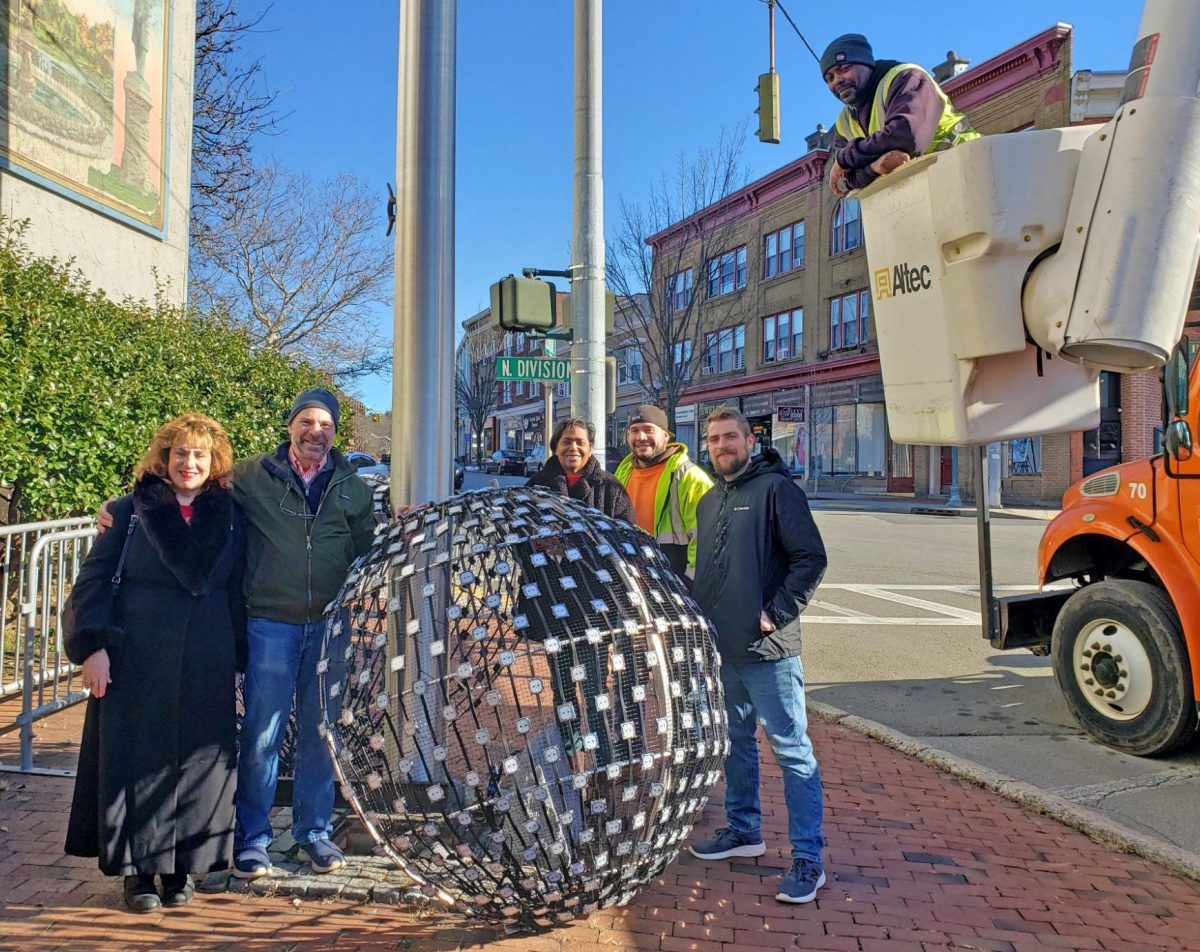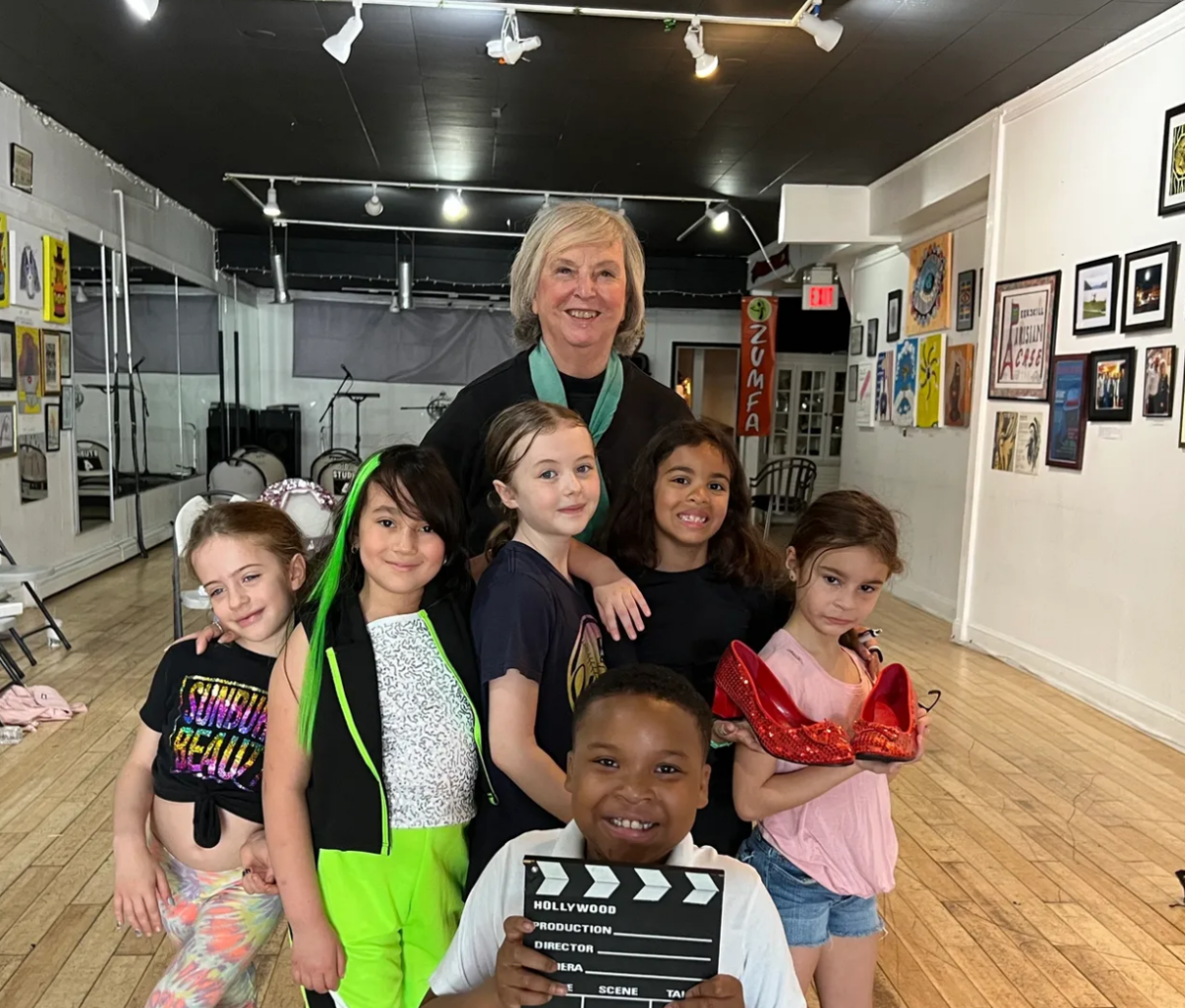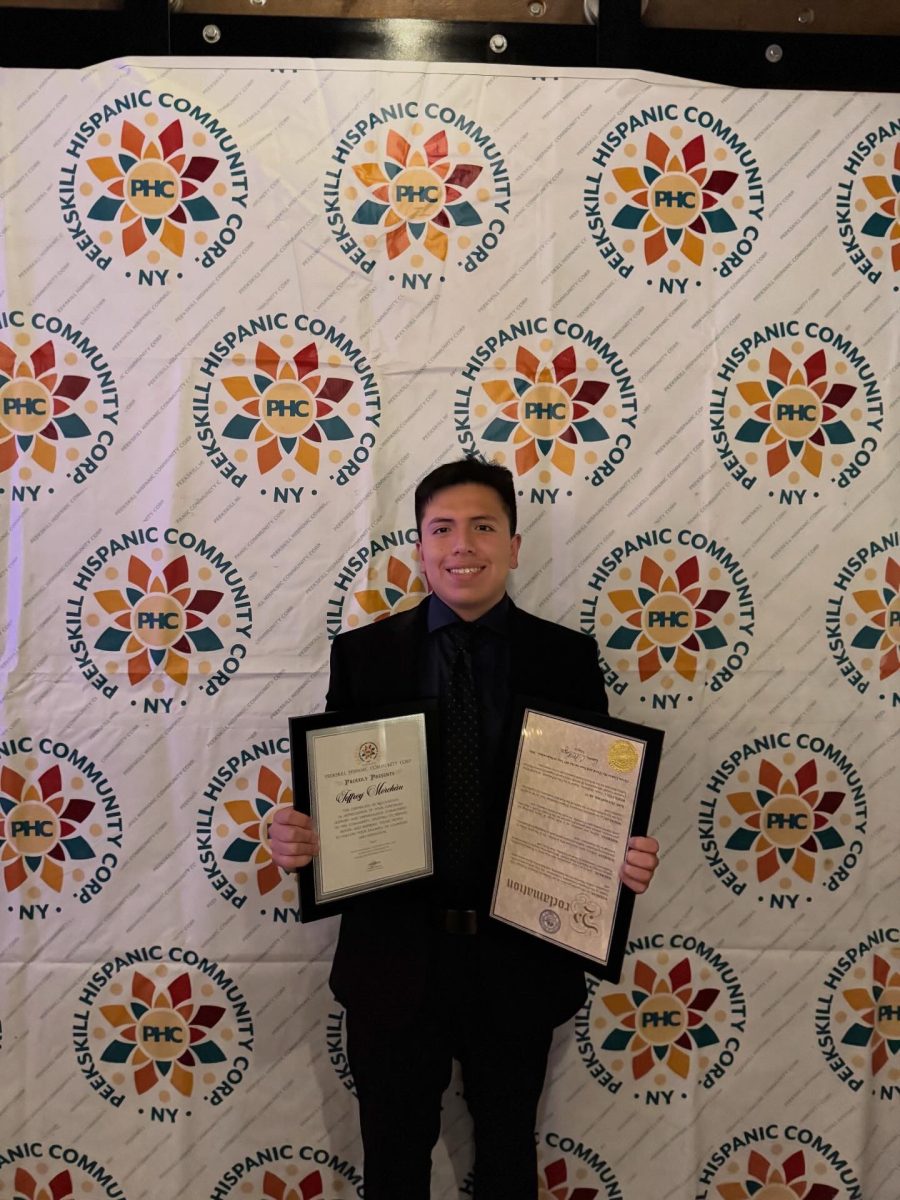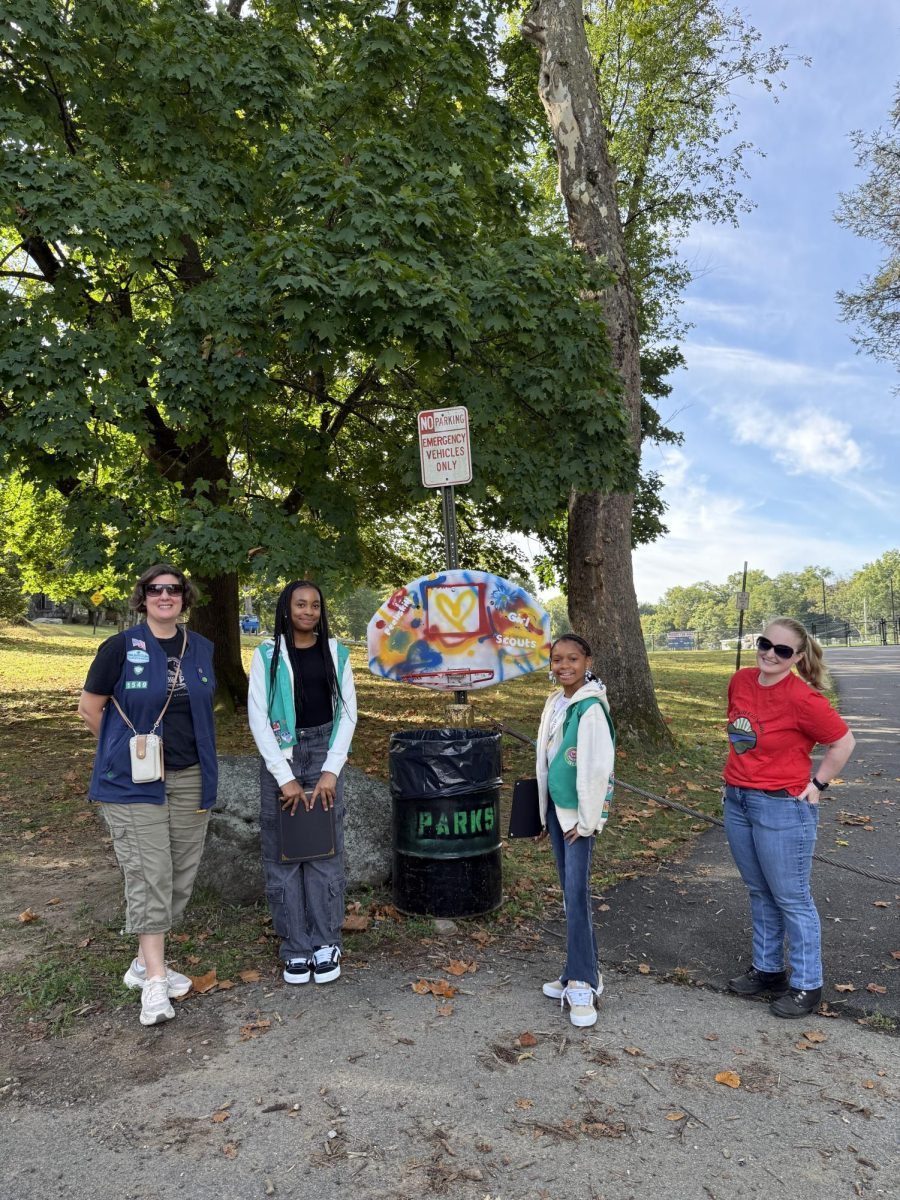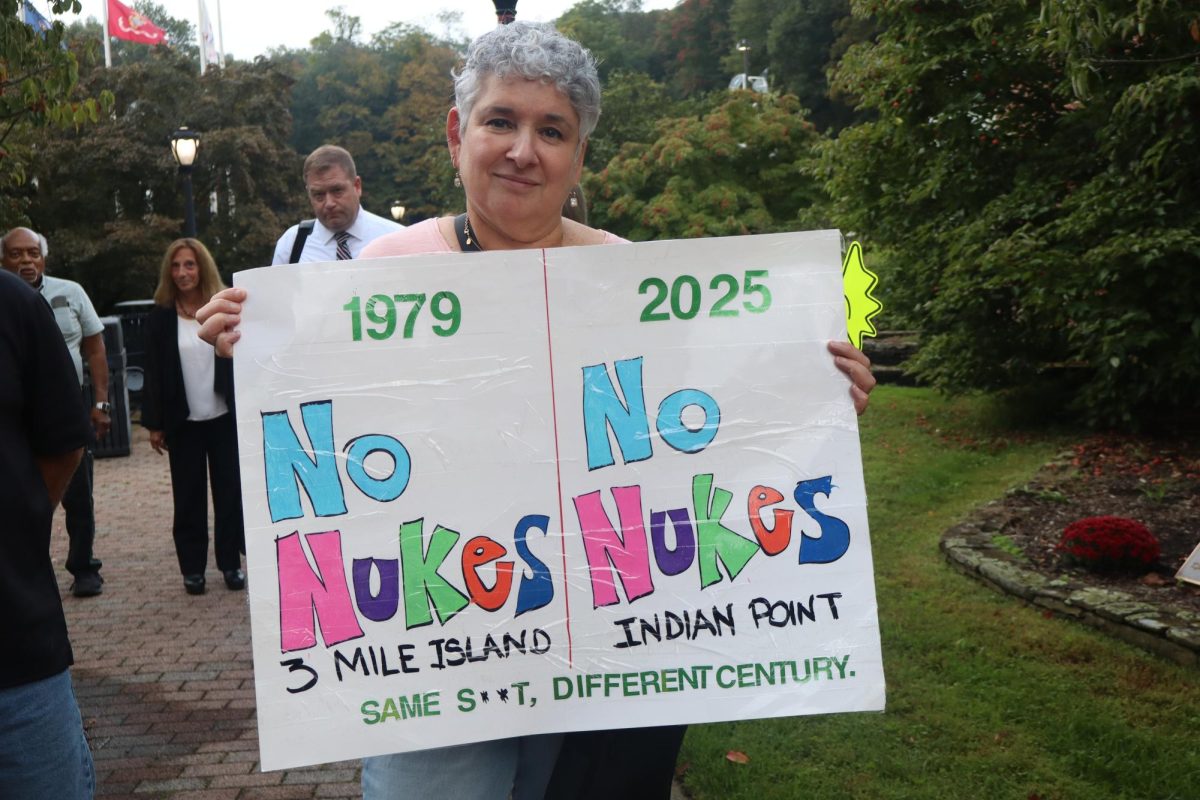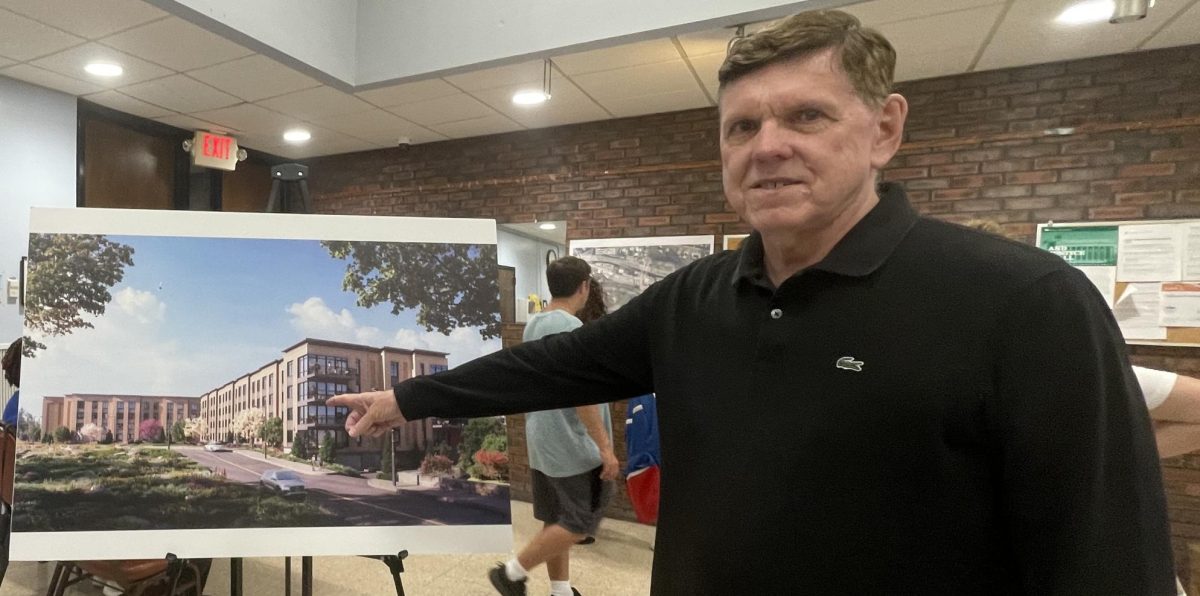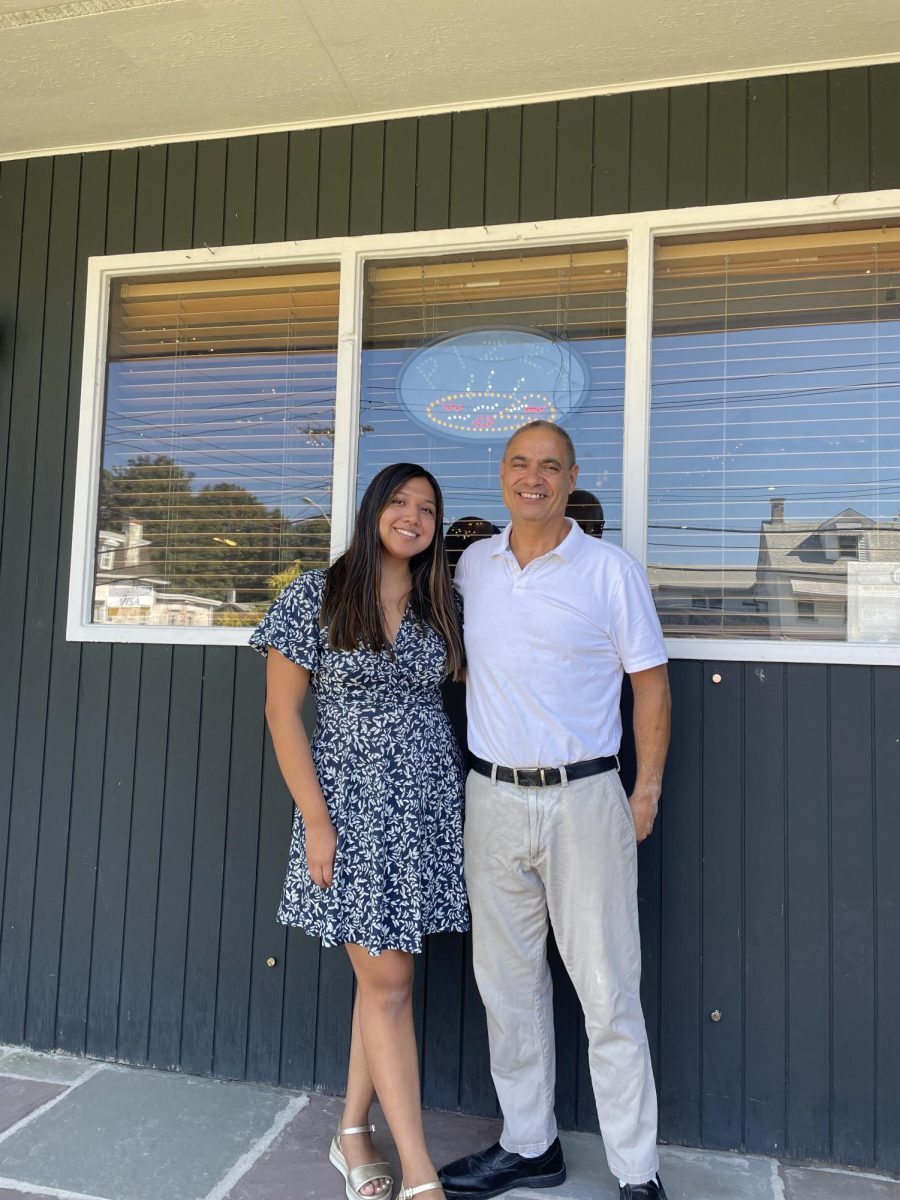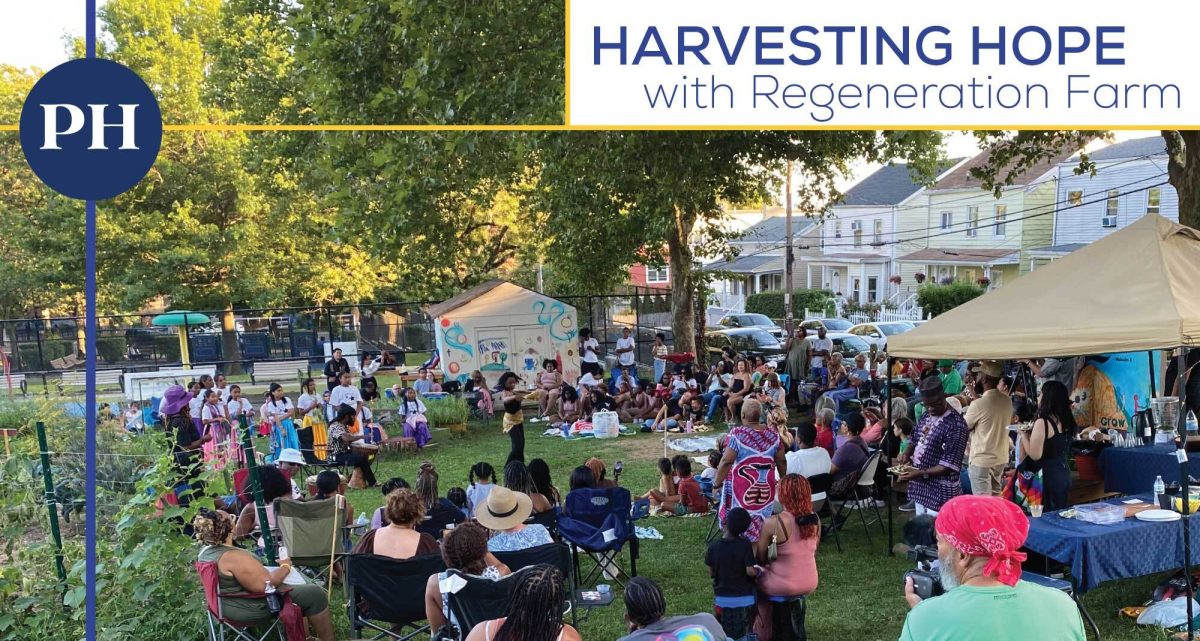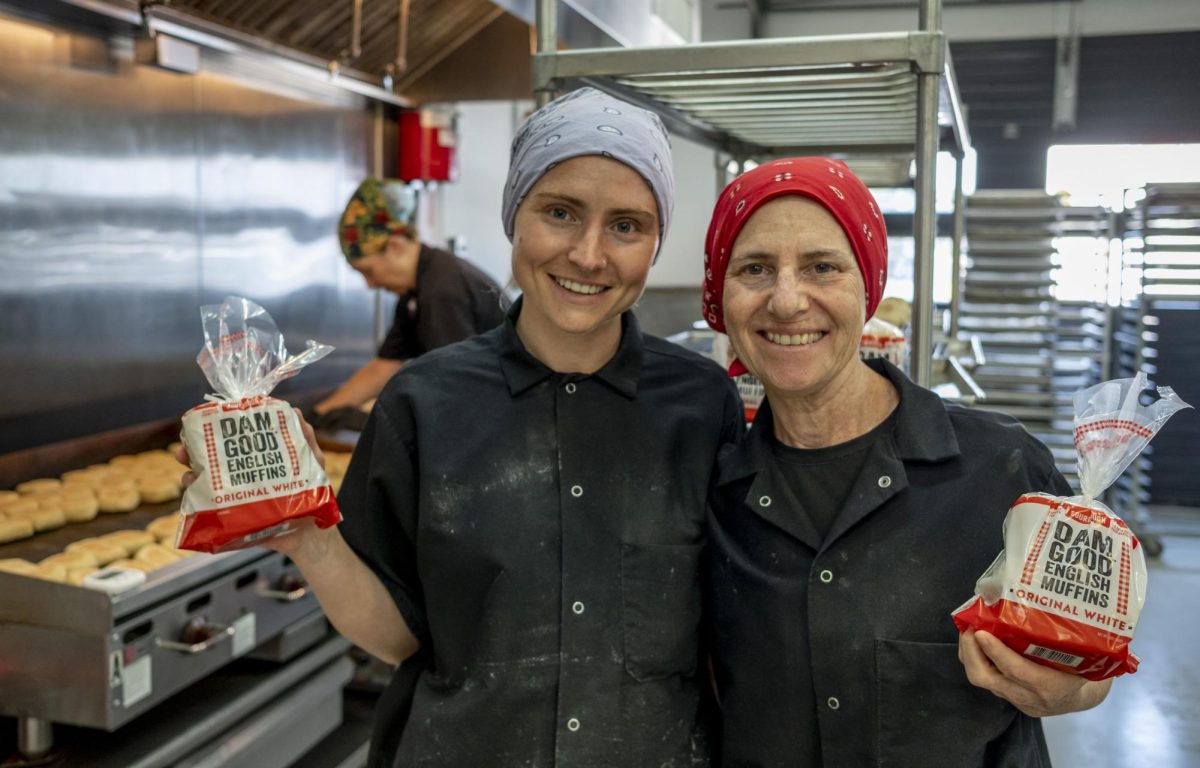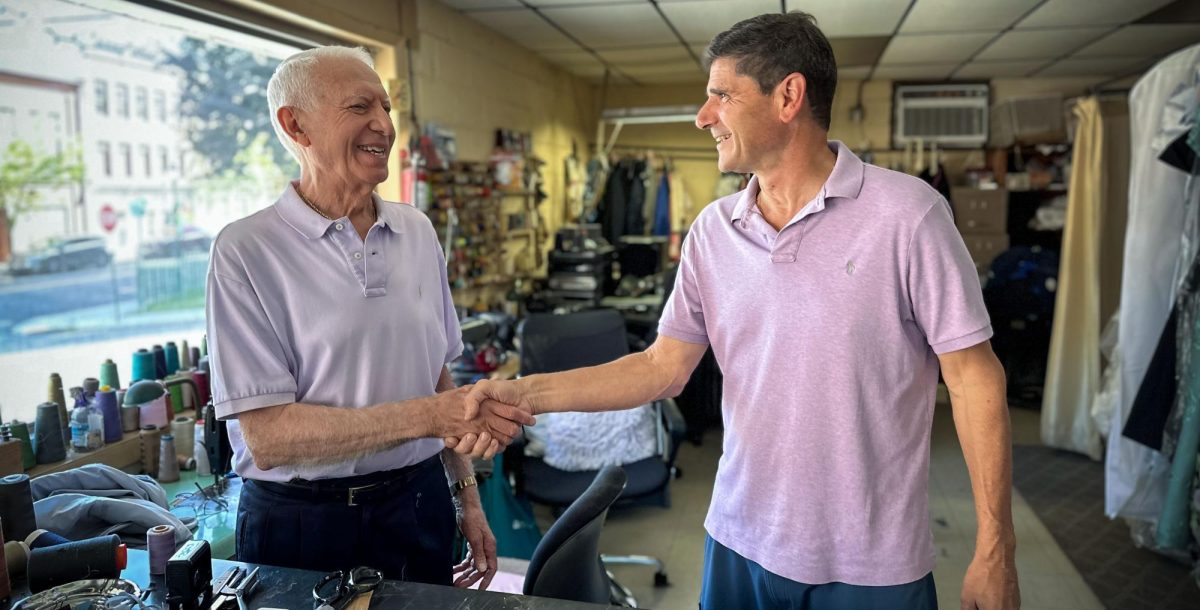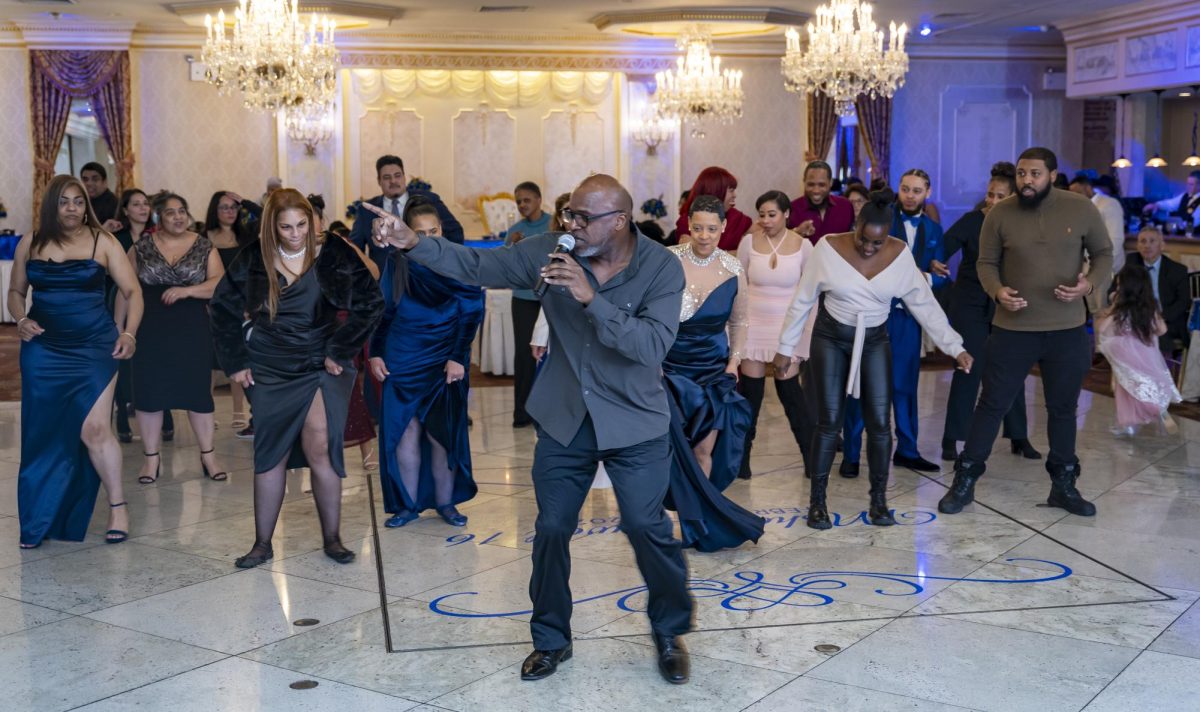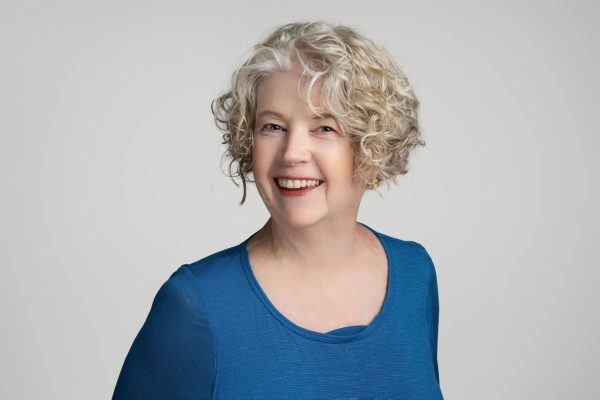Ridvan Idara and her team at New Era Creative Space (NECS) had no idea when they were hunkered down during the pandemic, continuing to provide programming for youth and teens via Zoom, that it would be a critical turning point in the life of the organization she founded in 2013.
For the seven years before the pandemic, NECS was relying heavily on volunteers – and hadn’t reached financial stability. Idara herself was unpaid and working two other jobs. When the pandemic arrived, the non-profit organization gave up their 1,400-square-foot space at Paramount East and began strategizing about what they envisioned the organization to look like in the next five years.
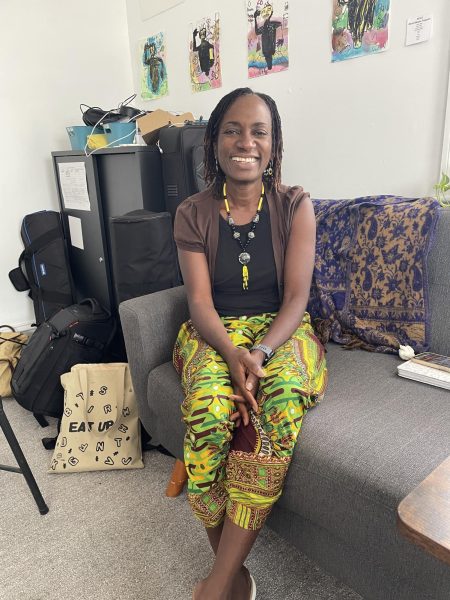
Those conversations honed in on their core mission: to inspire stronger communities through creative programs. That moment of re-centering helped steer the organization as it emerged from the pandemic and grew into a stronger level of sustainability. “It gave us the chance to focus on what we wanted,” said Idara about the discussions, which took place with teens, their parents, and board members.
Taking stock of what they’ve accomplished in the lives of young people – and where they’re headed in the near future – is the focus of NECS’s ten year anniversary celebration on September 10.
The original goal of NECS was to establish a space where young people could congregate, unleash their creativity, and express themselves within a caring and supporting community. Through the performing and visual arts, leadership and empowerment, and STEM programming – young people, ages 5-18, acquire confidence, foster collaboration, learn creative problem-solving, and discover self-expression. All this provides them opportunities for engagement in social action to build a better world, and ultimately become engaged in transforming their community.
This is achieved through collaboration with a multi-disciplinary team of local organizations, artists, and families. NECS creates creative experiential programs that promote problem solving skills, social-emotional learning, and a sense of citizenship. NECS employs a caring team of adult mentors that develop and provide innovative curriculum, weaving character development into all aspects of their programming.
Keeping those principles at the forefront of the discussions around what they wanted the organization to look like in five years, resulted in a new website, a ‘rebranding’, and a commitment to hire a professional grant writer to apply for funding using data culled during the previous seven years of programming.
The strategic planning group, while committed to seeing NECS grow, also kept in mind the need for funding to pay liveable wages to staff members and to be transparent about what it takes – dollar wise – to grow into a sustainable operation.
“I’ve always believed in it. I’m passionate about this – and that has fueled me,” said Idara, admitting that it was nice to get to a point where she could pay herself a salary. NECS now has three dedicated staff, including Idara and two part-time employees.
The data points shared with potential donors include the impact the organization had on young people. In 2022, some 600 youth participated in activities and 52 programs were offered, an incredible average of one new program every week. Some 300 children attended NECS’s summer camp programs – which run the gamut from experiences in nature at Peekskill’s Regeneration Farm, to being on the Hudson River.
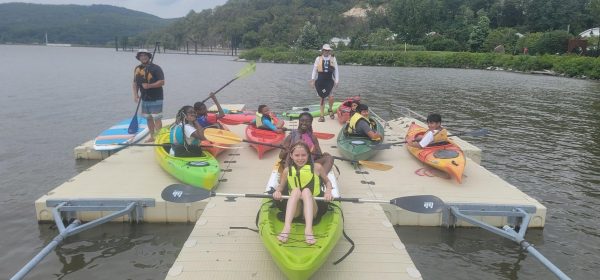
What contributed to NECS standing out from other groups was the fact that they continued to offer programming for young people during the pandemic, when many other groups shut down. “We provided space for them through online programs to unpack what was happening socially and emotionally throughout the pandemic,” said Idara, who previously worked as an occupational therapist, and did work in restorative justice – before turning her attention to NECS.
“After the pandemic it became clear how disenfranchised black and Latinx communities were, and foundations started paying attention. It was an opportunity for us and we rode that wave,” said Idara in a recent interview with the Herald.
That wave has carried the small organization to the next level of financial stability, and broadened the horizon for NECS participants that now extends beyond Peekskill.
In the past few years, the organization has offered cultural immersion programs, taking the Peekskill youth out of their comfort zones and exposing them to different cultures and communities so that they can learn from people different from them, and grow to become more empathetic about other people’s plights.
The Girls Empowerment Program has been in existence since the inception of NECS, but last summer its members traveled to The Gambia. They fundraise for the trips, and scholarships are offered to the ten young women who traveled to West Africa.
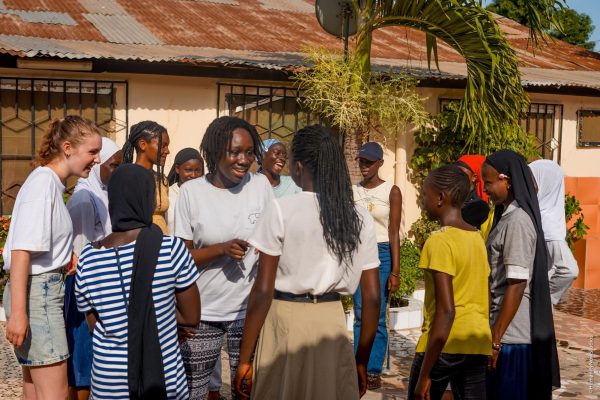
Earlier this summer, the group traveled to Alabama and spent six days with hosts along the civil rights trail. Some of their guest presenters had personally worked with civil rights icons John Lewis and Martin Luther King. “It was a transformative experience,” related Idara. “We get them out of Peekskill, and they learn about history. Grounding them in history is one of the ways to empower them, especially in light of the current climate.”
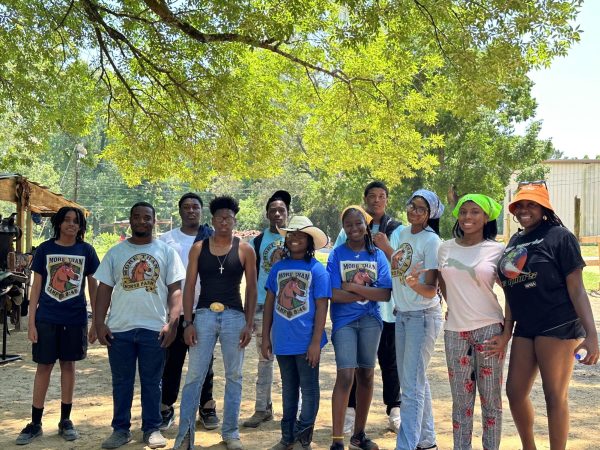
Another aspect of history that is understood in a different light after experiencing where it occurred – is the story of Native Americans. The Girls Empowerment Group traveled to South Pine Ridge, South Dakota in July. They visited a sweat lodge, the monument to Crazy Horse at the site of a massacre, and volunteered to gather sage for the traditional sundance at the Oceti Wakan Mission. During their time there, they were learning about the culture, truth and history of the Native people.
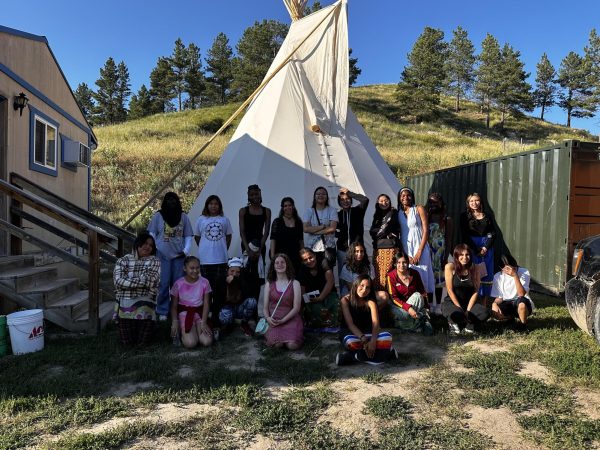
One of the projects that launched NECS on a larger trajectory was the sponsorship from Sony of a filmmaking program where students learned the mechanics of creating films. They learned how to use cameras and record sound, in addition to writing the script, directing and editing. The finished product, “We are Democracy” was entered into the Peekskill Film Festival in July.
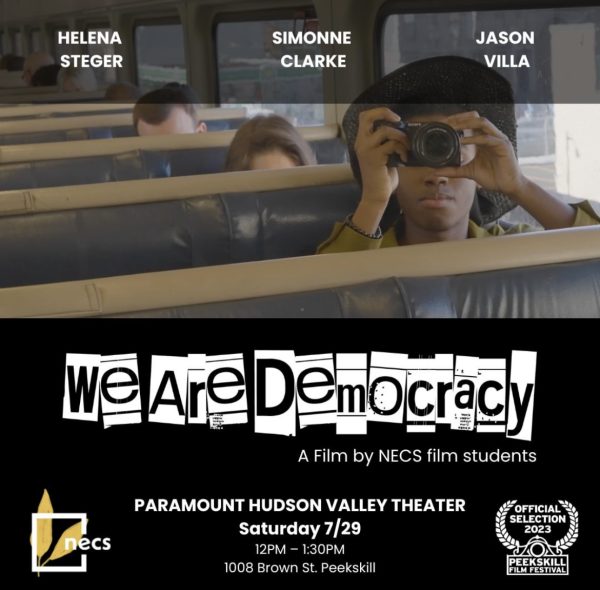
When Covid restrictions were lifted and people were gathering for in-person programming, NECS didn’t immediately rent space. Instead, they partnered with various organizations that had brick and mortar locations in Peekskill and brought their programming to those locations around town.
The Hudson Valley Museum of Contemporary Art was ideal for performance and spoken word pieces. Relationships fostered with the city school district during the first seven years naturally led to programs offered in school buildings. Other places around town where NECS children and teens are gathering include the community room at Dunbar Heights, Antonia Arts on South Street, Hudson Valley Chamber of Commerce, along with the Assumption, First Methodist and First Presbyterian churches.
NECS is now looking for a space to call their own. “On any given day we have at least three different programs going on at the same time,” said Idara. “We would prefer to have three rooms – for the technical work involving the film programs, art space for all the projects the kids create, and a space to rehearse plays and productions.”
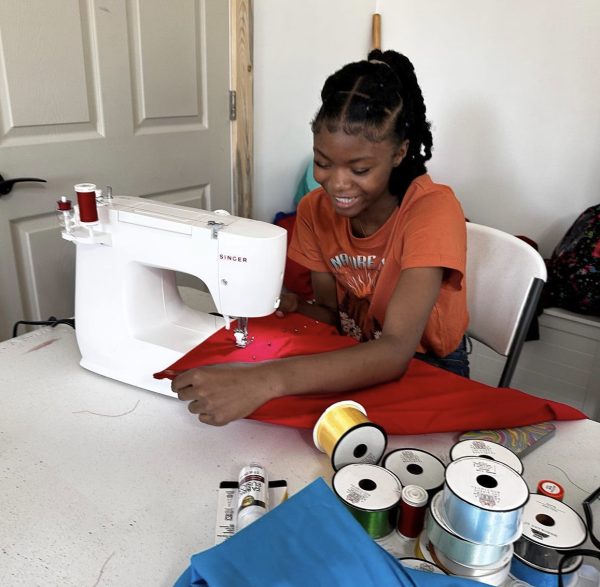
Those are the themes of the activities the young people who participate in NECS experience, but according to Idara, there are underlying motivations for the activities. “It’s not just about arts. Art is a tool for community building. The purpose of filmmaking and writing plays is to pose questions and to think about ‘what’s my place in the world?’ We’re not puppets and passive observers, but active participants. We get to write our own story and not be blown around by the wind.”
The words of the young people speak loudly about the impact NECS has had in their lives: Mia Foley relates that her experience of being a mentor to middle school age girls (ages 11 to 14) equipped her with valuable leadership skills in addition to imparting important life lessons to the girls. “I was teaching them virtues and doing projects and community service, and spreading the message of good women’s leadership.” Bonding with the girls was an important aspect for her, and taught her about being a good role model. “NECS is changing lives artistically, educationally – and I’m proud to say I was part of the change.”


